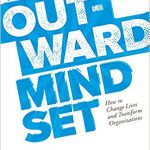“The Power of Agency” by Anthony Rao/Paul Napper
Co-authors Paul Napper and Anthony Rao, Psy.D. and Ph.D. respectively, are mental health and medical professionals drawing on their experiences and those of others for the writing of their book The Power of Agency: The 7 Principles to Conquer Obstacles, Make Effective Decision, and Create a Life on Your Own Terms. Agency is an increasingly scant commodity in our lives today as professional and personal pressures mount on every side; we want to be all things to all those and things we value in our lives and find ourselves stretched thinner and thinner as the weight of obligations bears down on us. This book attempts to outline a way out of these feelings and provide guidance for how we might regain control over our lives.
Those familiar with psychology, and few aren’t these days, will recognize many of the terms and jargon scattered throughout the book. Concepts like biases and agency itself are well-defined in public consciousness; there’s no need for this review to belabor readers with descriptions. Recognizing their presence and implementing a way of dealing with their effects or lack of in our lives is trickier. Napper and Rao recognize we must cut through the din of modern life and countless obstacles, self imposed and otherwise, in order to arrive at a place where we can pursue such ends and see lasting results.
PURCHASE LINK: https://www.amazon.com/Power-Agency-Principles-Obstacles-Effective-ebook/dp/B07F1BV4BF
They present seven principles for achieving these ends. The principles are never difficult to grasp as ideas and, in most cases, are concepts anyone can begin practicing immediately. Results may take time and the authors freely acknowledge this. The book includes a number of tests readers can administer to themselves to ascertain where they are at in their lives and lists you can follow that lay the author’s prescriptions bear for interested readers. Another outstanding and intensely human quality of the book is how the writers, at numerous points, urge readers to take their time digesting these principles rather than rushing headlong into them. They emphasize a degree of urgency throughout the book, but they never want that urgency to come at the expense of reader’s peace of mind.
I am taken, as well, by the clear and well written rollout of these principles. The book is accessible to a wide swath of possible readers and, in my opinion, you can open it at any point in the text and pick up with what the writers are proposing. It is more ideal, in my view, that you read it from beginning to end at first, but further readings of the volume can be conducted in piecemeal fashion. I can easily imagine a physical copy of this book becoming dog-eared with use in short order.
The Power of Agency: The 7 Principles to Conquer Obstacles, Make Effective Decision, and Create a Life on Your Own Terms includes acknowledgments and a section on the methodology the authors pursued in writing the text. The latter is particularly valuable for other mental health professionals who may use the text as a reference tool in their own practices and further strengthens the conclusions Rao and Napper arrive at. Thousands of self-help books emerge each year with varying degrees of value for the reader, but this is one of the best I’ve encountered in recent memory.
Michael Rand







